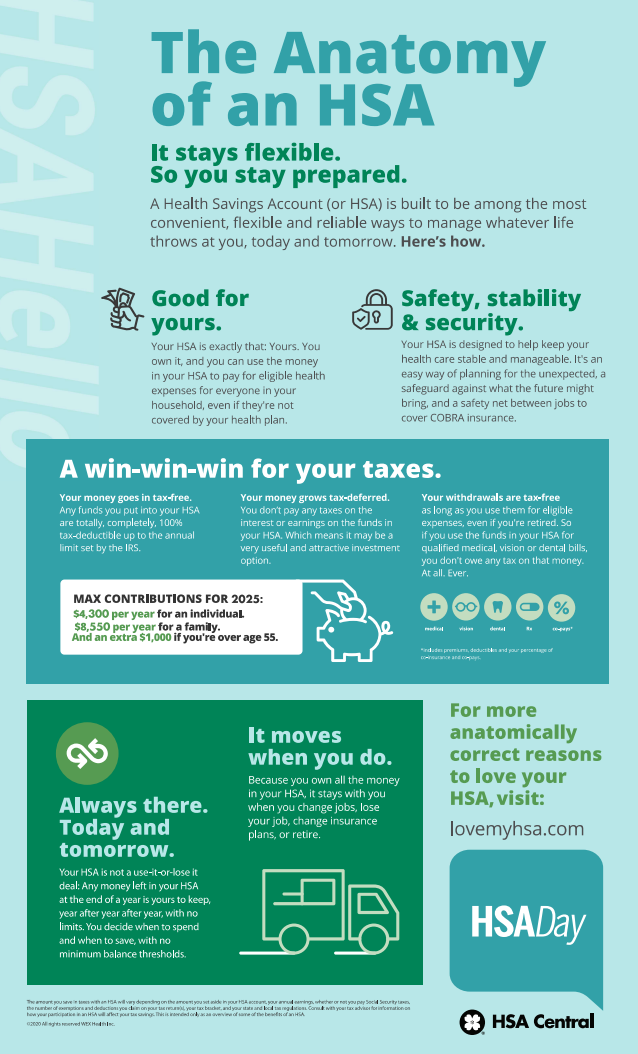If you’re enrolled in a High Deductible Health Plan (HDHP), you're eligible for a Health Savings Account (HSA). HSAs were established into federal law in 2003 and are financial accounts designed to help you save for future healthcare expenses. HSAs have a number of tax advantages, often referred to as a “triple tax advantage”.
What exactly is an HSA? We’ll break it down for you.
HSAs provide safety, stability, and security
Your HSA is designed to put you in control of your healthcare spending and savings with access to your funds when and where you need them. This healthcare savings account can help you plan for the unexpected now and in the future (even through retirement). An HSA is a great alternative to a 401(k) with the same tax advantages, plus the ability to withdraw funds for eligible medical expenses without paying taxes.
HSAs can be used for personal expenses or for family members
The funds in your HSA are owned by you. That means you can use them on your terms for eligible health expenses, such as doctors’ visits, contacts, orthodontics, and even things like bandages, sunscreen, and dentures. You can also use those funds for eligible health expenses for others in your household, even if they’re not covered by your health plan.

When you change jobs, your HSA funds go with you
Since you own all the money in your HSA, you always have flexibility and accessibility. You take the funds with you should you change jobs, lose your job, change insurance plans, or retire.
Your HSA funds roll over from year to year
Unlike a flexible spending account (FSA), your HSA funds continue to build from year to year. If you don’t use them all in one calendar year, they simply continue to grow. There’s no rushing to submit claims for reimbursement in the fear of losing money.
Your HSA funds have a triple-tax advantage
When we say triple-tax advantage, this means your contributions are 100% tax-deductible up to the annual limit set by the IRS, you won’t pay taxes on the interest or earnings on the funds in your HSA, and your withdrawals are tax-free as long as they are used for eligible medical expenses. If you have questions, please consult your tax advisor.
When choosing your health plan, it’s important to weigh all of your options and consider your current healthcare needs. Now may be the time to make the switch. Check out our HSA Health Plan Comparison Calculator to see what you could save annually compared to a traditional health plan.